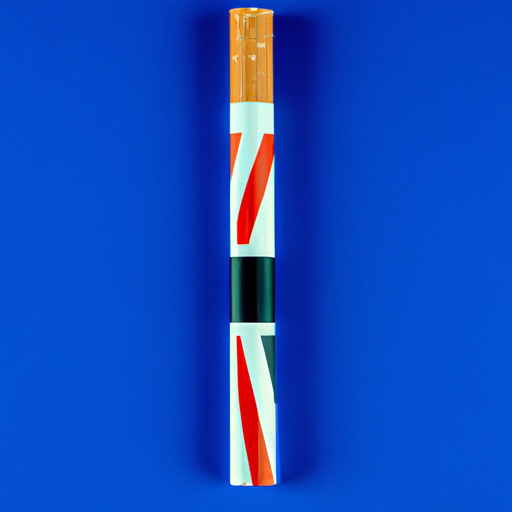
As a resident of the United Kingdom, I have seen firsthand the impact that cigarettes have on our society. With over 7 million smokers in the UK, it is clear that smoking is still a prevalent issue despite campaigns and regulations that aim to decrease its popularity. In this article, I will delve into the topic of cigarettes in the UK, discussing its history, current laws and regulations, and the effects it has on individuals and society as a whole.
History of Cigarettes in the UK
Cigarettes have been a part of British culture for centuries. They were first introduced in the late 16th century, brought to England by explorers returning from the New World. However, it wasn’t until the 19th century that they became widespread and were produced in factories. The first cigarettes were hand-rolled and consisted of shredded tobacco wrapped in paper, but by the 20th century, machines had been invented to mass-produce cigarettes, making them more affordable and accessible to the general public.
Smoking became a widely accepted habit in the UK, and by the 1950s, the country had one of the highest rates of cigarette consumption in the world. It wasn’t until the 1960s that the first studies on the harmful effects of smoking emerged, leading to a shift in attitudes towards cigarettes. This led to the implementation of laws and regulations that aimed to reduce smoking rates in the UK.
Current Laws and Regulations
The UK has implemented various laws and regulations to control the production, sale, and consumption of cigarettes. The most significant of these measures is the ban on smoking in enclosed public places, which was introduced in England in 2007. This ban was a significant step towards protecting non-smokers from secondhand smoke and promoting a healthier environment. It has also led to a decrease in smoking rates as people are deterred from lighting up in public spaces.
In addition to the smoking ban, the UK has also enforced laws on packaging and advertising. Cigarette packages must now carry graphic warnings about the dangers of smoking, covering at least 65% of the pack. This has been proven to be effective in discouraging smokers and preventing young people from starting to smoke. Cigarette companies are also banned from advertising their products on television and radio, and the sale of cigarettes to minors is strictly prohibited.
Effects of Cigarettes on Individuals and Society
The detrimental effects of smoking on individuals are well documented. The most significant impact is on one’s health, as smoking can lead to various diseases such as lung cancer, heart disease, and stroke. It is estimated that smoking causes over 100,000 deaths in the UK each year, making it the leading cause of preventable death. Moreover, smoking also has a significant economic impact, with the NHS spending over 2.5 billion pounds each year on treating smoking-related illnesses.
Smoking not only affects individuals but also has a significant impact on society as a whole. The NHS is not the only institution that bears the burden of smoking-related diseases. The UK government also spends a considerable amount of money on healthcare and welfare benefits for smokers. This, coupled with the loss of productivity due to smoking-related illnesses, places a strain on the economy.
Furthermore, secondhand smoke is harmful to those around smokers, especially children and non-smokers. The smoke from cigarettes contains over 7,000 chemicals, including 69 that are known to cause cancer. Non-smokers who are exposed to secondhand smoke are at a higher risk of developing smoking-related diseases, making the implementation of laws such as the smoking ban crucial for the protection of others.
My Personal Opinion
As a non-smoker and advocate for a healthier society, I believe that cigarettes should be heavily regulated and discouraged. While I understand that smoking is a personal choice, it has far-reaching consequences that affect not only the individual but society as a whole. The implementation of laws and regulations has been effective in reducing smoking rates, but more can be done to further discourage the habit.
One of the measures that I believe should be considered is increasing the price of cigarettes. The UK has one of the highest levels of tobacco taxation in Europe, but cigarettes are still relatively affordable. A higher price may deter individuals from purchasing cigarettes, especially young people who are more sensitive to price increases.
Education and awareness are also crucial in decreasing smoking rates. Children and young adults must be educated about the harmful effects of smoking and the reasons why it should be avoided. Campaigns should also focus on promoting healthier lifestyles and providing support for those looking to quit smoking.
In conclusion, cigarettes in the UK continue to be a pressing issue, but steps are being taken to address the problem. The history and current laws and regulations surrounding cigarettes highlight the need for stricter measures to reduce smoking rates and protect individuals and society from its harmful effects. As a nation, we must continue to educate and raise awareness about this issue and work towards a smoke-free future.